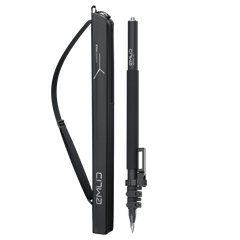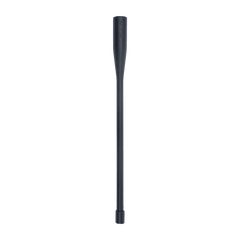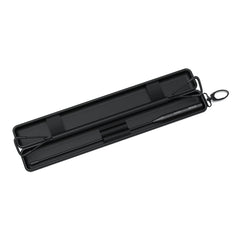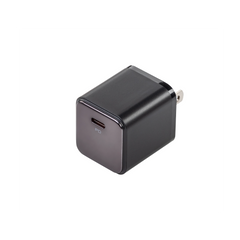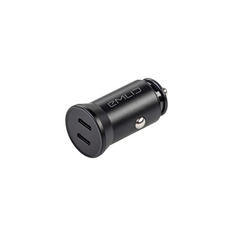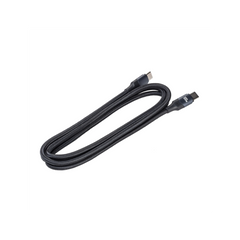Reach RS3
$2,999 tax excl.
Free shipping from Chicago (2-7 days)
Often Bought Together
Multi-band RTK GNSS receiver with tilt compensation
Survey grade precision even in hard-to-reach spots. Acts as a base or rover. Comes with a mobile app.
IMU tilt compensation
6DOF, RTK + 2 mm + 0.3 mm/°
Calibration-free and immune to magnetic disturbances
GNSS
GPS/QZSS L1C/A, L2C,
GLONASS L1OF, L2OF,
BeiDou B1I, B2I,
Galileo E1-B/C, E5b
18 hrs with tilt compensation
Li-Ion battery, USB Type-C charging
LTE and Wi-Fi
To connect the device to the internet
Dual-band radio
868/915 MHz LoRa to receive and transmit corrections
450 MHz UHF to receive corrections from bases transmitting TRIMTALK 450S (trademark of Trimble Inc.)
NTRIP and RTCM3
Supported protocols to send and receive corrections
Explore all Reach RS3 features and user reviews
Package includes
– Reach RS3
– Carrying case with a strap
– Radio antenna
– USB Type-C cable
Shipping from Chicago
2-7 days by FedEx or UPS
Specifications
Specification
-
Mechanical
Dimensions: 126 x 126 x 142 mm
Weight: 950 g
Operating tº: -20 to +65 ºC
Ingress protection: IP67
-
Electrical
Autonomy: 18 hrs as RTK rover with tilt, 22 hrs of logging
Battery: Li-Ion 5200 mAh, 7.2 V, 37.44 Wh
External power input: 7.2 V
Charging: USB Type-C 5 V, 3 A
Certification: FCC, CE
-
Positioning
Static: H: 4 mm + 0.5 ppm | V: 8 mm + 1 ppm
PPK: H: 5 mm + 0.5 ppm | V: 10 mm + 1 ppm
RTK: H: 7 mm + 1 ppm | V: 14 mm + 1 ppm
Tilt compensation: RTK + 2 mm + 0.3 mm/°
Convergence time: ~5 s typically
-
Connectivity
LoRa radio
Frequency range: 868/915 MHz
Power: 0.1 W
Distance: Up to 8 km
UHF radio—receive only*
Frequency range: 410 - 470 MHz
Protocols: TRIMTALK 450S**
Modulation type: GMSK
LTE modem
Regions: Global
Bands: FDD-LTE: 1,2,3,4,5,7, 8, 12, 13, 18, 19, 20, 26, 28, 66 TD-LTE: 38,40,41
UMTS (WCDMA/FDD): 1,3,2,4,5,6, 8,19 Quad-band, 850/1900, 900/1800 MHzSIM card: Nano-SIM
Wi-Fi: 802.11 b/g/n
Bluetooth: 5.4
Ports: RS-232, USB Type-C
*Requires a 410-470 MHz antenna, sold separately.
**TRIMTALK is a trademark of Trimble Inc.
-
Data protocols
Corrections: NTRIP, RTCM3
Position output: NMEA, LLH/XYZ
Data logging: RINEX, NMEA, LLH/XYZ, UBX
Internal storage: 16 GB
-
GNSS
Signal tracked: GPS/QZSS L1C/A, L2C GLONASS L1OF, L2OF BeiDou B1I, B2I Galileo E1-B/C, E5b
Number of channels: 184
Update rates: up to 10 Hz
IMU: 6DOF
Which Receiver Is Right for You?

Reach RS3

Reach RS4
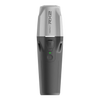
Reach RX2
Precision
RTK
H: 7 mm + 1 ppm
V: 14 mm + 1 ppm
PPK
H: 5 mm + 0.5 ppm
V: 10 mm + 1 ppm
RTK
H: 7 mm + 1 ppm
V: 14 mm + 1 ppm
PPK
H: 5 mm + 0.5 ppm
V: 10 mm + 1 ppm
RTK
H: 7 mm + 1 ppm
V: 14 mm +1 ppm
Tilt compensation
RTK + 2mm + 0.3mm/°
RTK + 2mm + 0.3mm/°
RTK + 2 mm + 0.3 mm/°
Base mode
✔︎
✔︎
—
Data logging
✔︎
✔︎
—
Connectivity
UHF radio (receive-only),
LoRa radio (send or
receive), NTRIP, Serial,
TCP, Bluetooth
UHF radio,
LoRa radio (send or
receive), NTRIP, Serial,
TCP, Bluetooth
NTRIP via Bluetooth from
a smartphone/tablet
Battery life
18 hrs as RTK rover with
tilt, 22 hrs of logging
16 hrs as LTE RTK rover
16 hrs
Weight
950 g
920 g
280 g
Ingress protection
IP67
IP68
IP68
Comes With Software for the Field and the Office
The Emlid Flow mobile app efficiently manages all field-related tasks, including receiver configuration, RINEX logging, data collection, and stakeout. In its web version—Emlid Flow 360—you can prepare and manage projects, and quickly export and share your data.
The basic features are available for free to all users. Upgrade your Emlid Flow and Flow 360 with a single subscription.










